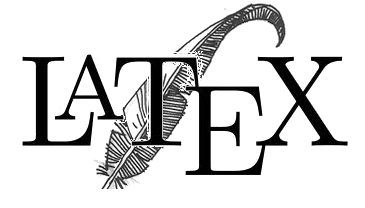Analisis Pola Konsumsi Energi Listrik Rumah Tangga Berbasis Simulasi IoT Menggunakan Model Hybrid LSTM-Attention
Abstract
Pengelolaan energi listrik rumah tangga menjadi tantangan penting seiring meningkatnya kebutuhan energi
dan keterbatasan sumber daya. Penelitian ini mengusulkan pendekatan berbasis simulasi IoT untuk menganalisis pola konsumsi energi, mendeteksi anomali, dan memberikan rekomendasi efisiensi energi tanpa perangkat fisik, menggunakan model hybrid LSTM-Attention. Dataset simulasi (14.400 sampel) dibangun dengan
EnergyPlus, divalidasi terhadap data riil, dan diolah untuk mengevaluasi performa model. Hasil menunjukkan akurasi 96%, recall 0.95 untuk anomali, dan F1-score 0.96, melampaui baseline LSTM (91.5%). Mekanisme attention memprioritaskan power_usage_per_hour (bobot 0.47), meningkatkan deteksi anomali. Rekomendasi seperti penjadwalan ulang dan penggantian perangkat menghasilkan penghematan energi 20-40%. Dengan waktu pelatihan 1,5 jam pada Google Colab, pendekatan ini menawarkan solusi skalabel dan hemat biaya untuk pengelolaan energi berkelanjutan, dengan potensi pengujian riil dan peningkatan model di masa depan.
Full Text:
PDF (Bahasa Indonesia)References
R. Adha, C.-Y. Hong, M. Firmansyah, and A. Paranata, “Rebound effect with energy efficiency
determinants: A two-stage analysis of residential electricity consumption in Indonesia,” Sustainable
Production and Consumption, vol. 28, pp. 556–565, Oct. 2021. [Online]. Available: https://linkinghub.
elsevier.com/retrieve/pii/S2352550921001846
J. A. Basconcillo and A. Rimkute, “GMM Approach to Residential Electricity Consumption in Indone-
sia,” Energy RESEARCH LETTERS, vol. 4, no. 3, Aug. 2023. [Online]. Available: https://erl.scholasticahq.
com/article/33899-gmm-approach-to-residential-electricity-consumption-in-indonesia
E. A. Affum, K. Agyeman-Prempeh, C. Adumatta, K. Ntiamoah-Sarpong, and J. Dzisi, “Smart
Home Energy Management System based on the Internet of Things (IoT),” International Journal of Advanced Computer Science and Applications, vol. 12, no. 2, 2021. [Online]. Available:
http://thesai.org/Publications/ViewPaper?Volume=12&Issue=2&Code=IJACSA&SerialNo=90
N. Hossein Motlagh, M. Mohammadrezaei, J. Hunt, and B. Zakeri, “Internet of Things (IoT)
and the Energy Sector,” Energies, vol. 13, no. 2, p. 494, Jan. 2020. [Online]. Available:
https://www.mdpi.com/1996-1073/13/2/494
S. Goudarzi, M. H. Anisi, S. A. Soleymani, M. Ayob, and S. Zeadally, “An IoT-Based Predi-
ction Technique for Efficient Energy Consumption in Buildings,” IEEE Transactions on Green
Communications and Networking, vol. 5, no. 4, pp. 2076–2088, Dec. 2021. [Online]. Available:
https://ieeexplore.ieee.org/document/9462477/
S. K. Vishwakarma, P. Upadhyaya, B. Kumari, and A. K. Mishra, “Smart Energy Efficient Home
Automation System Using IoT,” in 2019 4th International Conference on Internet of Things: Smart
Innovation and Usages (IoT-SIU). Ghaziabad, India: IEEE, Apr. 2019, pp. 1–4. [Online]. Available:
https://ieeexplore.ieee.org/document/8777607/
U. Ramani, S. Kumar, T. Santhoshkumar, and M. Thilagaraj, “IoT Based Energy Management
for Smart Home,” in 2019 2nd International Conference on Power and Embedded Drive Control
(ICPEDC). Chennai, India: IEEE, Aug. 2019, pp. 533–536. [Online]. Available: https://ieeexplore.
ieee.org/document/9036546/
F. Condon, J. M. Martínez, A. M. Eltamaly, Y.-C. Kim, and M. A. Ahmed, “Design and Implementation
of a Cloud-IoT-Based Home Energy Management System,” Sensors, vol. 23, no. 1, p. 176, Dec. 2022.
[Online]. Available: https://www.mdpi.com/1424-8220/23/1/176
M. Kardi, T. AlSkaif, B. Tekinerdogan, and J. P. S. Catalao, “Anomaly Detection in Electricity
Consumption Data using Deep Learning,” in 2021 IEEE International Conference on Environment
and Electrical Engineering and 2021 IEEE Industrial and Commercial Power Systems Europe
(EEEIC / I&CPS Europe). Bari, Italy: IEEE, Sep. 2021, pp. 1–6. [Online]. Available: https:
//ieeexplore.ieee.org/document/9584650/
G. Hafeez, Z. Wadud, I. U. Khan, I. Khan, Z. Shafiq, M. Usman, and M. U. A. Khan,
“Efficient Energy Management of IoT-Enabled Smart Homes Under Price-Based Demand Response
Program in Smart Grid,” Sensors, vol. 20, no. 11, p. 3155, Jun. 2020. [Online]. Available:
https://www.mdpi.com/1424-8220/20/11/3155
R. H. Fard and S. Hosseini, “Machine Learning algorithms for prediction of energy consumption and
IoT modeling in complex networks,” Microprocessors and Microsystems, vol. 89, p. 104423, Mar. 2022.
[Online]. Available: https://linkinghub.elsevier.com/retrieve/pii/S0141933121005640
G. Vats, S. Tanwar, and P. K. Sharma, “A Simulation-Based Analysis of IoT Security Architecture in
Smart Homes,” in 2024 International Conference on Computing, Sciences and Communications (ICCSC).
Ghaziabad, India: IEEE, Oct. 2024, pp. 1–4. [Online]. Available: https://ieeexplore.ieee.org/document/
/
R. E. Alden, H. Gong, C. Ababei, and D. M. Ionel, “LSTM Forecasts for Smart Home Electricity
Usage,” in 2020 9th International Conference on Renewable Energy Research and Application
(ICRERA). Glasgow, United Kingdom: IEEE, Sep. 2020, pp. 434–438. [Online]. Available:
https://ieeexplore.ieee.org/document/9242804/
S. Mahjoub, L. Chrifi-Alaoui, B. Marhic, L. Delahoche, J.-B. Masson, and N. Derbel, “Prediction
of energy consumption based on LSTM Artificial Neural Network,” in 2022 19th International
Multi-Conference on Systems, Signals & Devices (SSD). Sétif, Algeria: IEEE, May 2022, pp. 521–526.
[Online]. Available: https://ieeexplore.ieee.org/document/9955883/
S. Hochreiter and J. Schmidhuber, “Long Short-Term Memory,” Neural Computation, vol. 9, no. 8, pp.
–1780, Nov. 1997. [Online]. Available: https://direct.mit.edu/neco/article/9/8/1735-1780/6109
DOI: http://dx.doi.org/10.26798/jiko.v9i2.1922
Article Metrics
Abstract view : 580 timesPDF (Bahasa Indonesia) - 268 times
Refbacks
- There are currently no refbacks.
Copyright (c) 2025 Ali Impron








1.png)
